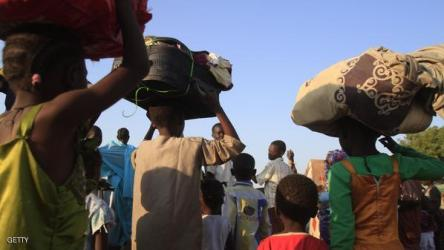Uganda is welcoming increasing numbers of Sudanese arrivals – over 33,000 people, 19,000 of whom have arrived in Kampala since the start of 2024, the United Nations Refugee Agency (UNHCR) said.
Majority of the refugees are seeking safety from a war that has raged on for more than a year.
Most Sudanese arrivals are from Khartoum, and many have a university-level education.
Including the Sudanese, on average 2,500 people arrive in Uganda every week, mainly from the Democratic Republic of the Congo (DRC) and South Sudan, primarily driven by ongoing conflicts and climate-related challenges.
The continuous influx of refugees is not making the headlines, but combined with funding shortfalls, puts significant pressure on protection and assistance services provided to refugees and their host communities, risking Uganda’s solid protection regime and refugee response model.
Due to funding gaps, the health sector – which serves both refugees and the surrounding host populations – has already been hard hit. Health centre staff numbers have had to be reduced and there are insufficient supplies to meet critical health needs.
An outbreak of conjunctivitis (red eye disease) around the country has reportedly also impacted several refugee settlements.
Schools are overcrowded and there are not enough teachers or educational materials, making it difficult for children – representing more than half of the total refugee population – to get an education.
Critical protection services, according to UNHCR, are also being hampered. For example, refugee registration is facing lengthy delays as there is a lack of necessary materials and equipment to make the process smoother.
Investments in supporting refugees with income-generating activities have had to be curtailed, with a ripple effect on efforts to make refugees less dependent on aid.
UNHCR with senior Ugandan officials have visited key partners including the Governments of Denmark, Netherlands, and Belgium as well as EU institutions, to highlight the profound impact of reduced funding, and advocate for additional resources.
UNHCR highlighted the importance of donor support in alleviating the plight of refugees and their host communities, emphasizing Uganda’s unwavering commitment to fulfil pledges toward greater socio-economic inclusion and self-reliance for refugees made at the 2023 Global Refugee Forum.
In 2024, the Uganda Country Refugee Response Plan (UCRRP) which is seeking $858 million for 96 partners to support over 1.67 million refugees and 2.7 million host community members, has received just 13 per cent of the required funds.
For decades, Uganda has been at the forefront of assisting refugees and has been a beacon of stability in the region, embracing progressive policies that exemplify the Global Compact on Refugees, allowing refugees to have land and freedom of movement and to reside in urban areas provided they can support themselves.
If those policies lose ground as funding ebbs, we may see people moving out of Uganda in search of a way to survive.
In May, refugees started leaving for neighbouring countries citing the lack of support and the reduction in food rations.

